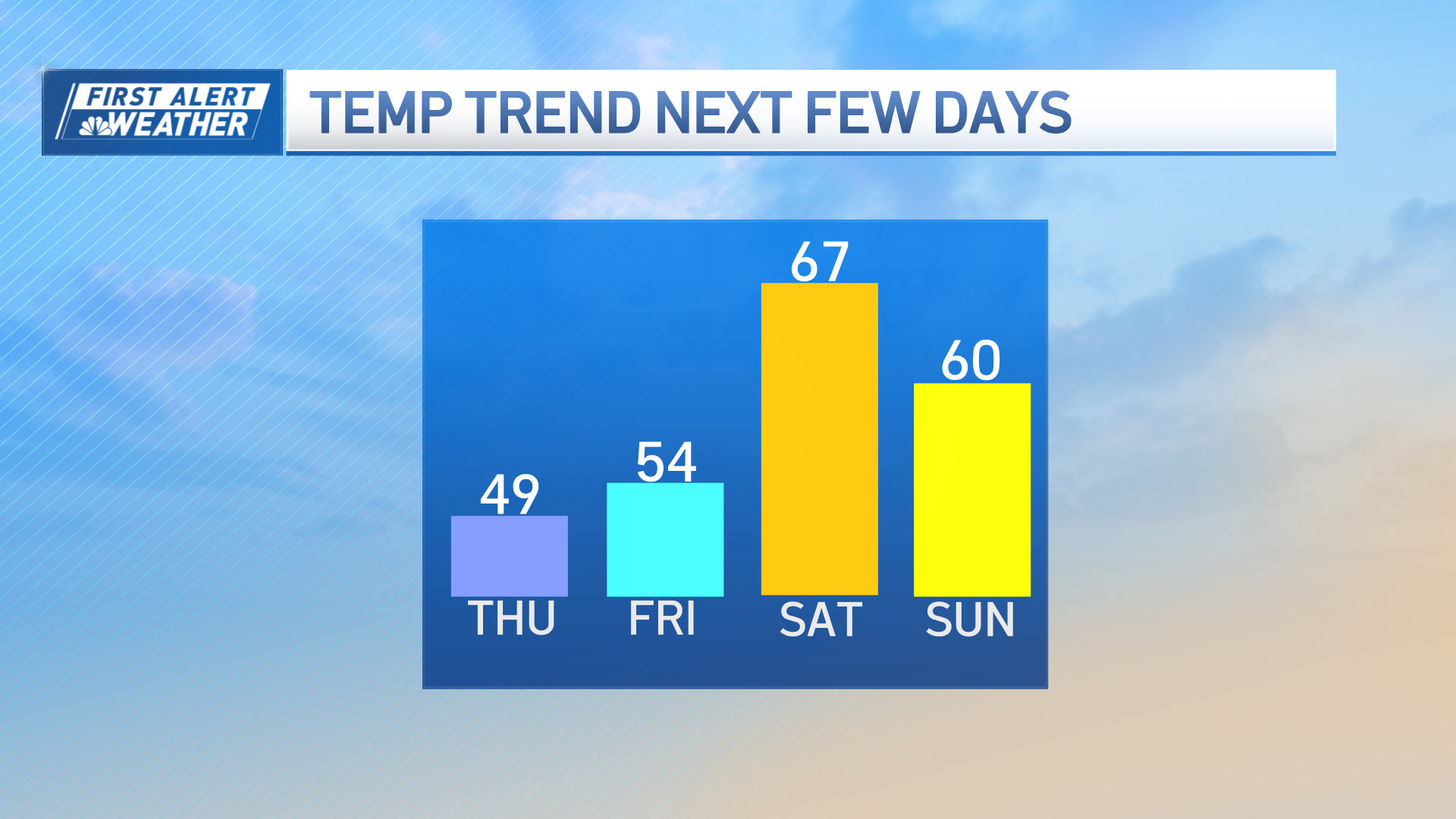(NECN: Danielle Niles) - Ahhh - Spring in New England means it's time to trade in the piles of dirty snow for green grass and beautiful flowers and trees.
But this time of year has its issues too, because it's allergy season, and if you suffer like I do, you know exactly what I'm talking about.
You may not be feeling the effects just yet, due to a drastic contrast from last year when record warmth caused pollen levels to skyrocket early.
According to Dr. John O’Loughlin from Lahey Hospital and Medical Center, depending on the temperature, allergies could be over in 10-14 days, but, some years, it could just drag on.
If you currently don't have allergies, you may think you've escaped it, as I did - until six years ago. At first, I put up with the sneezing, stuffy nose and itchy eyes, thinking it was something you just deal with. When symptoms turned into sinus infections, though, that meant a trip to the allergist for a skin test.
Turns out I'm allergic to almost every type of tree and grass pollen. Allergy pills, prescription nasal spray and eye drops are now part of my daily spring routine.
But what if your symptoms aren't as severe? First, check with your doctor, who can help you figure out the best course of action, which may simply mean an over-the-counter allergy medicine.
Weather Stories
The weather forecast can also determine how you feel. Windy days are especially bad, and the good news about rainy days is that pollen gets washed out of the air.
An immediate shower after outdoor activity can help, or you can even remove your clothing at the front door, that way you won't track pollen through your house.
So the question is is just how bad will this allergy season be?
Tree pollen comes out first and should peak in May, so expect some relief as we get closer to summer.
Grass pollen, on the other hand, is a bit delayed, peaking at the end of May into June. If you're allergic to both, the month of May could be the most difficult for you.
We can't make you change your daily routine, but I think you'll be surprised at how a few small adjustments could make spring your new favorite season.
Here are some other tips on dealing with seasonal allergies:
• Do a thorough spring cleaning.
• After that, clean and vacuum frequently, but don't dust pollen! Instead, spray it with a cleaner and wipe it clean.
• Stay in air conditioning when possible.
• Change filters in air conditioning units and vents frequently.
• Shower or bath at the end of the day to remove allergens from your body and hair.
• Wash bedding and your clothing every week (or every few days if you can) in hot water.
• Along the same lines, dry your laundry indoors as opposed to an outdoor line.
• Use allergy-proof covers for your pillows and bedding.
• If you're allergic to grass pollen, remain indoors when grass is mowed and avoid playing in fields of tall grass.
• Remember, pets also bring pollen indoors- so give them baths often.
• Keep your windows closed to reduce pollen entering the house.
• As tempting as it is to open your car windows during beautiful weather, keep them closed.
• Minimize morning activity when the most pollen is emitted.
• Take a vacation or get-away to a more pollen-free area, such as the beach.
• Although it's not fashionable, wear a filter mask from your local hardware store if you're doing work outdoors.
• Remember to clean your contacts at the end of the day, even if they're long-wear.
• Rinse your nasal passages after outdoor activity with a saline solution.
• Take your allergy medicine at least 30 minutes prior to outdoor activity.



